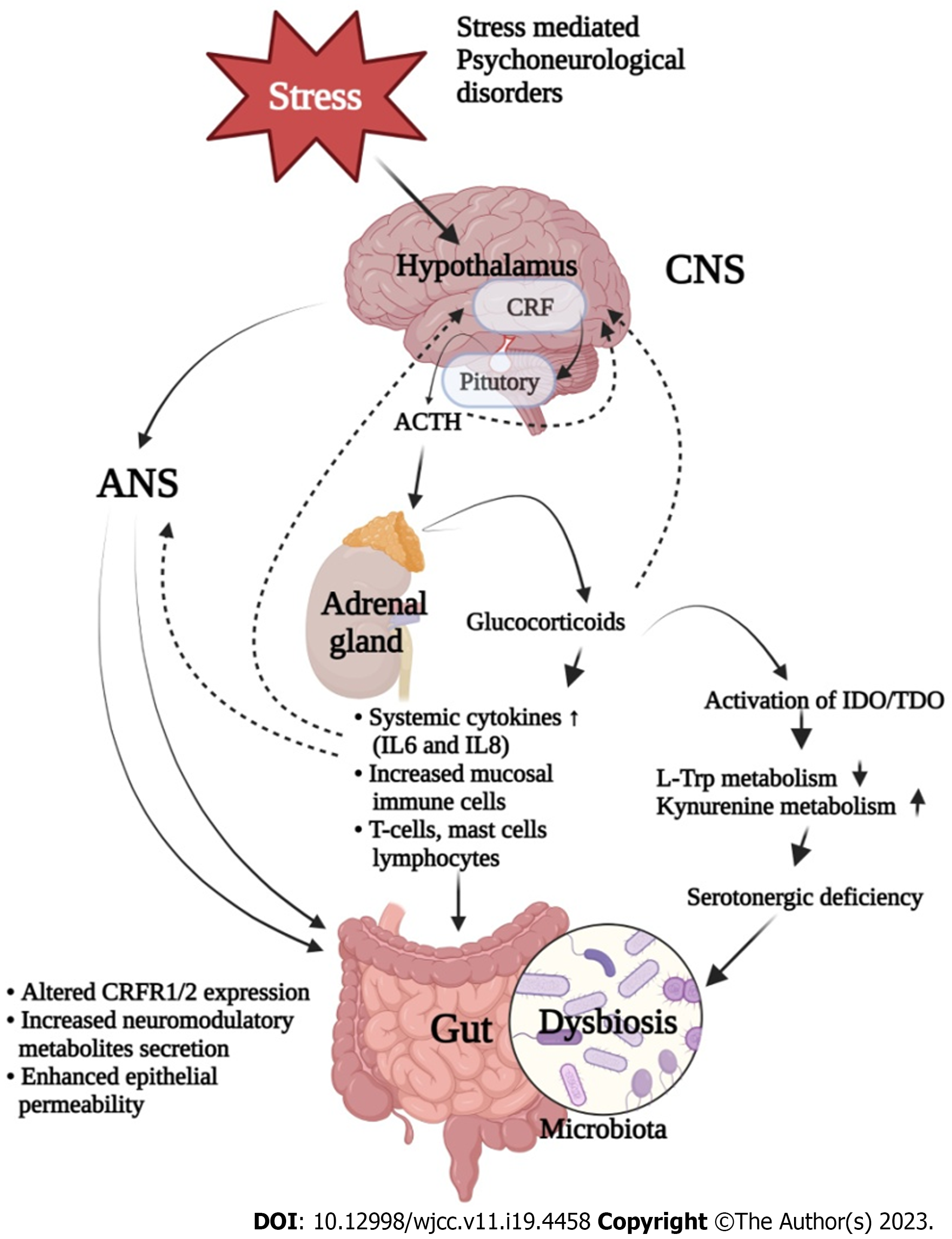Copyright
©The Author(s) 2023.
World J Clin Cases. Jul 6, 2023; 11(19): 4458-4476
Published online Jul 6, 2023. doi: 10.12998/wjcc.v11.i19.4458
Published online Jul 6, 2023. doi: 10.12998/wjcc.v11.i19.4458
Figure 3 Impact of stress on irritable bowel syndrome.
A bidirectional signalling has been identified between brain and gut, under stress condition in irritable bowel syndrome (IBS). Stress induces the activation of hypothalamic-pituitary-adrenal axis which results in the release of various stress factors such as corticotropin-releasing factor from hypothalamus, thus causing the release of glucocorticoids from adrenal glands. This collectively alters bowel function and stimulates the upregulation of immune system, which directly or indirectly regulates gut function. In addition to this, stress also modulates the tryptophan metabolism by up-regulating kynurenine pathway which generates neurotoxic and neuroprotective metabolites. Enzymes responsible for the degradation of tryptophan are significantly affected by immune pathways (indoleamine-2,3-dioxygenase) and stress levels (tryptophan-2,3-dioxygenase). Under stressed conditions and due to excess availability of kynurenine and its metabolites, the activation of these pathways lead to potential serotonergic deficiency along with altered enteric nervous system and central nervous system functionalities, thus leading to microbial dysbiosis, as a classical symptom of IBS. CRF: Corticotropin-releasing factor; ANS: Autonomic nervous system; CNS: Central nervous system; ACTH: Adrenocorticotropic hormone; IDO: Indoleamine-2,3-dioxygenase; TDO: Tryptophan-2,3-dioxygenase.
- Citation: Singh SV, Ganguly R, Jaiswal K, Yadav AK, Kumar R, Pandey AK. Molecular signalling during cross talk between gut brain axis regulation and progression of irritable bowel syndrome: A comprehensive review. World J Clin Cases 2023; 11(19): 4458-4476
- URL: https://www.wjgnet.com/2307-8960/full/v11/i19/4458.htm
- DOI: https://dx.doi.org/10.12998/wjcc.v11.i19.4458









